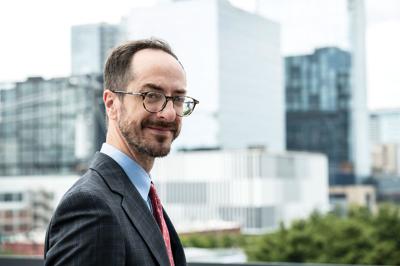Metropolitik is a recurring column featuring the Scene’s analysis of Metro dealings.
As of this writing, more than 30,000 people have voted in the city’s runoff elections, almost doubling totals from the same early-voting period in the Aug. 3 general election. Tapping the coffee stirrer on the voting screen has become an errand this time around, especially at the top of the ballot, where Freddie O’Connell and Alice Rolli have staked out neighboring territory in a mayor’s race that will finally end on Sept. 14.
Rolli’s last big campaign was helping Lamar Alexander avoid an upset from Joe Carr (then a state rep, now Rutherford County mayor) in the 2014 GOP primary for U.S. Senate, a contest that ended closer than expected and notched a win for the kind of institutional conservatism that has marked her bid for mayor. Rolli proved in the general election that railing against crime and taxes can still get you pretty far in Nashville. In the extra innings, though, when a 12-person field narrowed to just her and O’Connell, Rolli lost the soft, gooey middle where most of Nashville votes. Her talking points — police and good government — stayed static. A few blunders shifted her campaign further to the right when she needed to go in the opposite direction, and a pledge not to raise taxes has betrayed Rolli’s reductive understanding of city finances. A savvier campaign might have spun O’Connell as a big-government advocate or a miracle for the far left — or both at the same time.
“In order to beat the long odds, Rolli would need to run a more-or-less mistake-free campaign,” wrote Stephen Elliott for the Scene last week. “She has not.”
Instead, it’s O’Connell who expanded, taking up the vote-rich territory left behind by third-, fourth- and fifth-place finishers Matt Wiltshire, Jeff Yarbro and Heidi Campbell, well-liked and well-heeled politicians whose mutually assured destruction split a combined 38,000 votes on Aug. 3. All three former candidates — along with seventh-place finisher Vivian Wilhoite — have endorsed O’Connell in the runoff. In recent debates, the outgoing district councilmember made sure to highlight his support for the Metro Nashville Police Department, which his council has consistently furnished with new equipment, additional positions and facilities upgrades. A new mailer boasts his endorsement from Davidson County Sheriff Daron Hall, now on his sixth term as Nashville’s local jailer, a direct counter to Rolli’s endorsement from the Fraternal Order of Police. O’Connell’s four-bullet priority list includes his support for a “renewed focus on safety” in schools, a fuzzy line that gestures at August’s blown state legislative session on gun reform. During the runoff’s various debates and forums, O’Connell has flexed his thorough understanding of how the city is run and lent credibility to the high-level fixes he’s promised on the campaign trail. When he gets the chance, O’Connell pushes Rolli further right, emphasizing the school board takeover she floated in June and her ideological alignment with the conservative state lawmakers who have repeatedly pissed off Nashville voters.
O’Connell’s subtle shifts in runoff messaging left Rolli little room to maneuver. When she does try to draw contrast — like an impassioned speech at the Tennessean debate advocating for school resource officers, uniformed cops in Metro Nashville Public Schools who supposedly affect the likelihood of a mass shooting — it’s not immediately clear that O’Connell even disagrees with her. (When it comes to cops in schools, he does.) He’s also the one with kids actually in MNPS, a card the councilmember played at a debate a few weeks ago when he called out Rolli for sending her kids to private school. On license plate readers, Rolli’s chance to hammer O’Connell for a recent no vote on expanded use of the technology, she allowed him to frame his vote as a responsible display of caution amid otherwise staunch support of MNPD Chief John Drake and Nashville’s police force. At times, O’Connell even seems to pitch himself as a successor to John Cooper, eager to pick up projects like the East Bank and The Village, Cooper’s community safety roundtable.
Such little-contested middle ground has also robbed the city of critical public debates about the most important local issues of the next decade, like corporate subsidy packages, the future of tourism, the role of charter schools in the public system, large-scale transportation projects, and housing density.
Every week, the race feels less competitive in favor of O’Connell.






